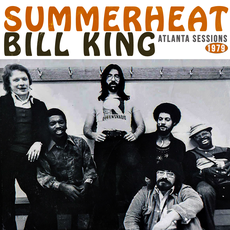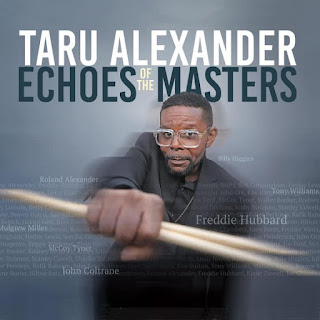Prolific Danish composer Anders Koppel, whose distinguished career includes music for theatre, film, ballet and over 150 scores for various classical ensembles, pays homage to his fellow countryman, the famed photographer and social reformer Jacob Riis, on Mulberry Street Symphony. Riis, who emigrated from his native Denmark to America in 1870, exposed the poor living conditions of impoverished immigrants in his groundbreaking photojournalism book, “How the Other Half Lives.” Inspired by Riis’ compelling photographs, Koppel created Mulberry Street Symphony, an epic work in seven movements, each one based on a different Riis photo depicting tenement life in New York City during the 1880s. “The work is a eulogy to the life and dreams of these people,” said the composer.
Koppel’s symphony for jazz trio and orchestra (the Odense Symphony Orchestra conducted by Martin Yates) showcases the composer’s son, alto saxophonist Benjamin Koppel, as the main voice through all seven movements. The work is underscored by the world-class rhythm tandem of bassist Scott Colley, whose sideman credits include work with Herbie Hancock, Jim Hall, Pat Metheny, Carmen McRae and Andrew Hill, and drumming great Brian Blade, a longtime member of the Wayne Shorter Quintet who has also toured and recorded with Bill Frisell, Herbie Hancock, Joni Mitchell and Bob Dylan. As Koppel noted of the flexible trio of Colley, Blade and his son Benjamin, “With their profound understanding of the music and their capacity for catching the moment, they melt effortlessly into the symphony orchestra and move the work to where the border between notation and improvising disappears.”
In capturing the essence of Riis’ striking photos in music, Koppel deftly integrates symphonic elements with jazz improvisation while also conjuring up a wide palette of colors and moods along the way. “The whole symphonic score is completely developed and notated, but I didn’t write that much for the trio,” he explained. “Great musicians have fantastic ears. And I wanted to take advantage of that by giving Brian, Scott and Benjamin the freedom that I knew that they could fill. And they interpreted my vision completely.”
Each of the seven movements of Mulberry Street Symphony is a dramatic piece that tells a story in sound. The cinematic opening track, “Stranded in the City,” conveys the sights and sensations of an immigrant’s arrival into New York City during the latter part of the 19th century. Benjamin Koppel commented on his father’s gift for capturing the extra-musical in his scores. “The way that he uses his music to describe feelings and stories and emotions and even actions is more like an abstract painter would paint a feeling. And because we know him so well, we know his intentions and we can hear his stories and we can relate to it all the way. And so that made this collaboration very easy and open for us to just go into exploring mode.”
As the expansive “Stranded in the City” develops, Benjamin’s alto sax alternately darts and soars to convey its shifting moods, from pensive apprehension to giddy optimism. Anders described the newly-arrived immigrant in Riis’ photo this way: “He’s a 19-year old boy in his best, maybe only suit, stranded on a staircase, in the corner, outside closed doors, hoping for food and lodging. Something happened to his eye. The pulsating sounds of the big city resound from the streets. The wondering, curious and shy look of his eye tell a story of arrival, isolation and will to survive.”
Equally cinematic, while also deftly straddling the through-composed and improvisational divide, are the gentle lullaby “Minding the Baby” and the frantic 20-minute “Tommy the Shoeshine Boy,” the latter featuring facile, Bird-like flights by Benjamin throughout, along with some ecstatic blowing over the more turbulent sections. The poignant and moody tone poem “Blind Man” is meant to portray the lonely figure in Riis’ compelling photo. As Koppel noted: “Always standing on the same spot, leaning slightly agains the lamppost at the corner, peddling his rubber-tipped pencils. The darkness in his gaze, the dignity of his posture.” The composer added, “I tried to convey a special character, a man who is very much himself, apart from society, in a sense. But then again, the music took on its own way.”
A dramatic “The Last Mulberry” is trudging, blues-tinged requiem for the last mulberry tree in Little Italy. As Koppel wrote: “A blues for the tree and for the time closing in. Still blooming every spring, its leaves became more and more sparse. In the end it was cut down.” The conversational playing between Benjamin Koppel, Scott Colley and Brian Blade enlivens this track as the orchestra swirls around the interactive trio.
The unabashedly swinging “Bandit’s Roost” is perhaps the most dynamic and freewheeling track of the set. With Colley and Blade setting the kinetic pulse, Benjamin wails with rare abandon and authority over the top of this up-tempo burner. Koppel described the Riis photo that inspired the invigorating music: “Young Italian mobsters posing underneath their mothers’ laundry hanging out to dry. Fragments of a popular song echo between the walls while plans are being made and energies collected, ready to burst.”
Mulberry Street Symphony closes on a comforting note with the hopeful hymn, “The New House,” based on a 1894 Riis photo of a new home for orphans and homeless children that he helped build on a green hill in the countryside. As Koppel noted: “The simplicity of the hymn reflects the hope and knowledge that lies behind this photo: things will change – and it matters what you do.”
In the process of putting the music together for Mulberry Street Symphony, Koppel said, “I was inspired by the Riis photos but my aim was not to make a sort of programmatic piece. The music has its freedom always, as it should have. The music often has its own will. So my point of departure was the photographs, but then the music sometimes sort of took over.”
The significance of Koppel, born into a musical family in Copenhagen in 1947, now honoring the legacy of the Danish-American immigrant Riis at a time of increasing debate over the growing wave of refugees and immigrants around the world was not lost on the Danish composer. “In my family’s history there are these two immigrant stories: Firstly, my grandparents coming to Denmark in the beginning of the 20th century as Jewish immigrants from Poland. At that time, Poland was occupied by Russia and there were always pogroms on the Jews, so they fled to Denmark and made a living there. And secondly, my parents and my sisters were refugees from Hitler during World War II. When Germany occupied Denmark in 1940, they fled to Sweden. So the idea of being an immigrant has always been very present in my thinking. And these days, in this time of history, the whole issue of refugees that have no home and immigrants desperately trying to come into other countries is ever present. It’s a mess and it’s a tragedy. So that was another line of thinking in this new work.”
The son of classical composer and pianist Herman D. Koppel, Anders Koppel was a child singer in the Copenhagen Boys Choir and studied piano with his sister and father from the age of five. He also played the recorder and later clarinet and made several television and concert appearances as a youngster, including the first performance of his father’s Variations in 1962 at age 15. He took up the Hammond organ in 1966 and the following year founded with his brother Thomas the legendary Danish rock group The Savage Rose. The band toured Europe extensively from 1967 to 1974 and even made a Stateside appearance in 1969 at the Newport Jazz Festivalwhile also recording eight albums in studios located in London, New York, Los Angeles, Rome and Copenhagen. Koppel left the group in 1974 to make his first solo recordings, Valmuevejen with singer Otto Brandenburg, and Aftenlandet, a progressive instrumental album. In 1976 he cofounded with bassoonist-clarinetist Peter Bastian and percussionist Flemming Quist Møller the trendsetting world music trio Bazaar. The band played together for 37 years until 2013.
In the ‘80s and ‘90s, Koppel wrote music for 50 plays, eight modern large-scale ballets and more than 100 movies. Since 1997, he has devoted himself to composing for classical ensembles and has completed 150 scores to date — solo pieces, chamber music, orchestral and vocal works, an opera and 33 concertos for solo instrument with orchestra. His saxophonist son Benjamin has been a featured player in six of his concertos. Father and son have also been playing together in recent years in a highly interactive quartet setting with Colley and Blade.
In the process of composing Mulberry Street Symphony, Koppel said, “I thought about the relationships between America and my country, and all the fantastic music that has been brought to us from America that has in many ways changed our lives and inspired us endlessy. And then Jacob Riis ran through my mind because I knew his story. I had just seen an exhibition in Copenhagen of his photographs, which impressed me very deeply. And so there was another link between Denmark and America.”
As a fully-realized work seeking to bridge the worlds of classical and modern jazz, Anders Koppel’s Mulberry Street Symphony is in the lineage of such successful orchestral works as Duke Ellington’s Black, Brown & Beige (1943), Miles Davis-Gil Evans’ Sketches of Spain(1960), Stan Getz’s Focus (1961) and the Claus Ogerman-Michael Brecker collaboration on Cityscape (1982). And like many of his past works, it brings together Koppel’s love of symphonic music and jazz improvisation in organic fashion. “I think that has been my language ever since I started writing scores,” he said. “I believe that the musical language that you have as a composer is a result of the life you have lived and the music you have studied and loved. My music has traces of all the music that I have been occupied with in my fairly long life — classical, jazz, Cuban music, Italian folk songs, Turkish music. There’s so much fantastic music that influenced me during my life and all of that is in the music too. It’s all combined in my language, I believe.”
Added Benjamin Koppel, “I think all his music is very much his own music. He has his totally own voice and his own direction, which is this borderland between classical and jazz or rhythmical music. And because he was a performer himself, he has always been able to write music that all the members of the symphony orchestra love to play. He was a clarinet wunderkind when he was a child and performed of a lot of my grandfather’s clarinet pieces when he was 10, 12, 14 years old. So he knows what it’s like to be a wind player, but he’s also an extraordinary Hammond organ player and pianist as well. So he knows the instruments and he knows the importance of having fun while playing but also being challenged by the music. So he makes sure that every voice in the symphony orchestra is swinging and melodic and important. That is very much a part of his sound and his personal approach. And I think that’s a line going through all this orchestral works.”

























